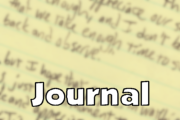You know, driving is starting to look really attractive…
June 7, 2010, 2:37 PM
Well, Metro announced its fare increase, and it’s now going to cost me $11.00 round trip for work. Multiply that by 22 workdays per month on average, and you’ve got $242 in commuting costs per month. By comparison, the cost of a monthly parking pass at my building is $230. Transit still edges out driving when you factor in the cost of gas and increased car maintenance, plus that early-evening nap that I like to take on the Metro going home. Plus I’ve made friendships on the bus, and I would miss those folks if I started driving to work every day. It’s those little intangibles that are keeping me on transit, even as the costs are coming close to being a wash.
But with this new fare increase, one really has to start wondering if Metro isn’t starting to price itself out of the market. For folks like me who commute from the suburbs and have a choice between driving and commuting, if driving becomes cheaper than public transportation, I’m driving. I don’t care that I’m a public transportation buff. If it’s more expensive than driving and parking, then the hell with it. I’ll add one more car to the road, spewing noxious fumes out its tailpipe.
This also brings us to another point: Metro’s fares are needlessly complicated. Metro’s distance-based fare really is more trouble than it’s worth. To get somewhere, you have to determine what your fare will be to get from point A to point B. Then if you end up having to change your destination and the fare is higher, you have to add fare, either using the Exitfare machines for paper farecards, or on the regular farecard machines with SmarTrip. It’s a pain. Metro needs to decide once and for all whether it’s a commuter railroad or an urban subway system. Commuter railroads charge distance-based fares. Subways charge flat fares. I’ve ridden transit in Chicago and Boston, and their services that are most comparable to Metro charge a flat fare. You paid when you entered, and you were done. Then when you finished, you just exited. It didn’t matter where you went – it cost the same. Meanwhile, Metro has as many different fares as there are entry and exit points. Thus there is the potential for 7,396 different fare amounts (though in reality, it is much less than this). Chicago and Boston go way out into the suburbs, and they charge a flat fare. Metro can, too. And I doubt it would require much reprogramming, either. Just set the boarding charge to the flat fare, and set the mileage charges to zero.
Meanwhile, the “peak-of-the-peak” charge has me particularly steamed. My figure above doesn’t include that charge, because it won’t be implemented until later this summer due to needing to reprogram the fare collection system to handle it (see above comment). That will add another 40 cents per day to my commute (20 cents each way). This is where Metro’s fare system, in my opinion, has gotten out of hand. Now you have two peak fares – one for what I’ll call “off-peak peak” (early and late morning, and then mid-afternoon and early evening), and one for the main peak. So now you also have to figure that into your fare. I consider this ridiculous.
In the end, Metro really needs to get its act together. Metro management played the public like a violin, getting everybody all up in arms about service cuts, and then getting them to fall for another largest-fare-increase-in-Metro’s-history hook, line, and sinker. We all knew in our hearts that Metro was bluffing the whole time, and they would never have ever instituted such draconian service cuts, and I wish that someone would have called them on it. I wish I had.
However, part of the problem is that Metro has no dedicated funding source, and the Metro board, to put it nicely, is dysfunctional. Really, Metro’s board needs to be replaced, and it needs to start with getting rid of Jim Graham, a non-Metro rider who is up for reelection this year (gotta start somewhere). I don’t even live in the District, and I’d gladly campaign against him. Yes, transit is a “big f—ing deal”. It’s also time to get some sort of regional tax earmarked for transit that spreads the burden evenly across the population for this public good. Regional gas tax? Sure. Regional sales tax? Sure. Do something. And reform the way Metro is governed while you’re at it.
Yeah, I guess you could say I’m a little steamed. I’m getting fleeced for doing the right thing on my way to work. I’m taking a car off the road, which helps ease congestion on the roads for other drivers and reduces the amount of air pollution (greener), but the secret to getting people to go green is to make it financially worthwhile. And railfan or not, if Metro prices itself out of the market, I might end up turning in my SmartBenefits for a monthly parking pass.
Song: Puppies
Quote: Now, though, two or so years down the road when Metro tries to play this same game again, we need to remember this time, and not let them have their way with us...
Categories: WMATA










